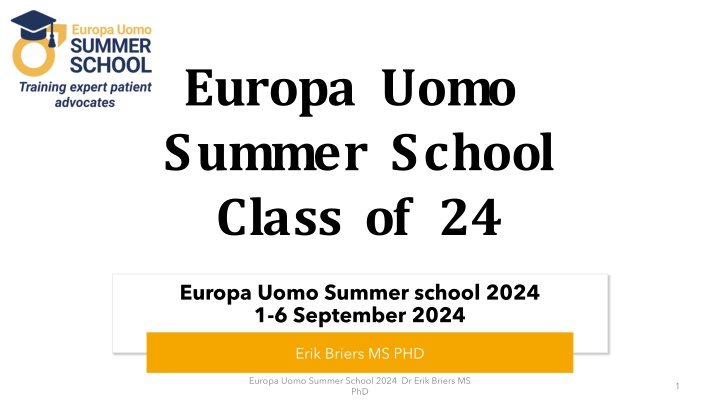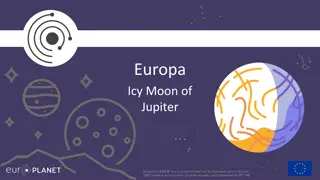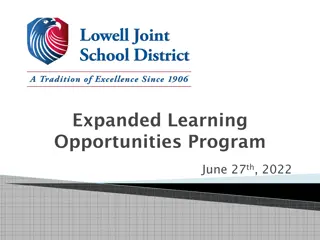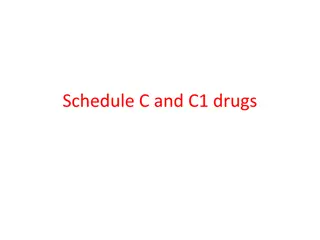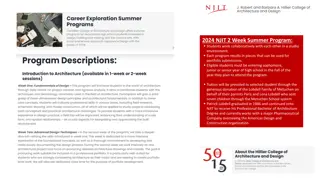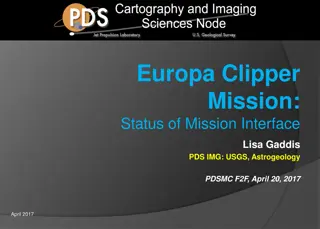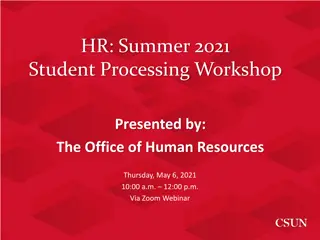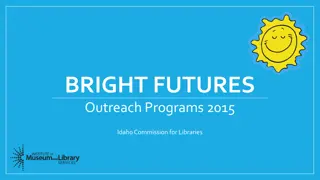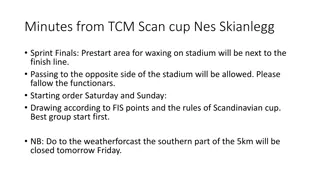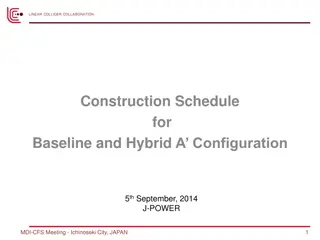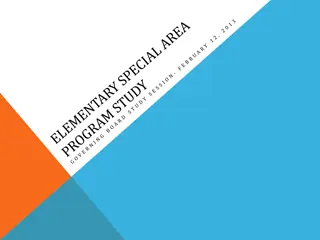Europa Uomo Summer School 2024 Schedule & Program Overview
Europa Uomo Summer School 2024 offers an intensive learning experience on prostate cancer, clinical trials, and more. The program includes sessions on molecular principles, cancer development, statistics, clinical trials, PSA measurement, and prostate cancer evolution. Participants will delve into various topics led by Dr. Erik Briers, gaining insights into the latest advancements in the field. Join us for a comprehensive educational journey at the Europa Uomo Summer School 2024.
Download Presentation

Please find below an Image/Link to download the presentation.
The content on the website is provided AS IS for your information and personal use only. It may not be sold, licensed, or shared on other websites without obtaining consent from the author.If you encounter any issues during the download, it is possible that the publisher has removed the file from their server.
You are allowed to download the files provided on this website for personal or commercial use, subject to the condition that they are used lawfully. All files are the property of their respective owners.
The content on the website is provided AS IS for your information and personal use only. It may not be sold, licensed, or shared on other websites without obtaining consent from the author.
E N D
Presentation Transcript
Europa Uomo Summer School Class of 24 Europa Uomo Summer school 2024 1-6 September 2024 Erik Briers MS PHD Europa Uomo Summer School 2024 Dr Erik Briers MS PhD 1
Europa Uomo Summer School 2024 Sunday Afternoon 01/09/2024 12:00-18:00 Arrival of the participants at Airport Brussels Transfer with train to Brussels North ( 10 min) Short ( 10 min) walk to the NH Hotel Bloom Brussels Rue Royale Koningsstraat 250 1210 Brussels nhowbrusselsbloom@nh-hotels.com Register in the hotel and get your room, relax Register with Europa Uomo and get your participants badge Welcome 18:00- EB In the hotel, welcome to a drink and a dinner Welcome address by the Europa Uomo Summer School director, introduction into the Summer School and on the rules of engagement Getting to know the colleagues Practical information Welcome dinner 2 Europa Uomo Summer School 2024 Dr Erik Briers MS PhD
Europa Uomo Summer School 2024 Monday Morning 02/09/2024 09:00-10:30 EB BL01.1 This session reintroduces the basic principles of the molecular world and explains the basic principles of the molecular world and explains molecular structure, enzymes, radio-isotopes and much more. (FUN01) BL01.2 Description of how cancer can come to be and evolves. Explaining that cancer is a genetic disease and that cancers evolve over time acquiring new mutations. Explaining possible consequences of mutations. (FUN06) BL01.3a Description of how prostate cancer develops and that we do not know of any preventable risk factors. Explaining that under these circumstances the only solution for detecting prostate cancer in a curable stage is screening. Description of the different cell types present in the prostate and that they can all lead to different types of prostate cancer. (FUN07) BL01.3b Introduction into the anatomy of the prostate. Its position in the male body and its function. The microscopic structure and cell types involved (FUN05) Basics I 10:30-11:00 Coffee break 11:00-12:30 EORTC BL02.1 Introduction into clinical trials. Why clinical trials, what is their importance in the development of a new medicine. Explanation of the different phase's and of the different types of clinical trials. Inclusion criteria Exclusion criteria The developmental stages of a new medicine are to be explained (CT01) BL02.2 Introduction into statistics and clinical trials Number of participants to show statistical power, alpha, significance etc Intention to treat, the different possibilities to present the results, what about a single arm study. Open versus double blind . (CT03) BL02.3 Interactive session reading a publication on a clinical trial in prostate cancer. Teaching the participants the important aspects in reading, authors, publication medium, is it peer reviewed, are the authors involved in the study, did the sponsor check the publication before publication? References (CT02) Clinical trials 12:30-13-30 Lunch break 3 Europa Uomo Summer School 2024 Dr Erik Briers MS PhD
Europa Uomo Summer School 2024 Monday Afternoon 02/09/2024 13:30-15:00 EB BL03.1 What is PSA and how is it measured in the real world. Why should we have our PSA always measured in the same laboratory? Quality assurance; Variation in results (DED05) BL03.2 In the natural evolution of prostate cancer we learn how the normal prostate evolves over many years with a slowly evolving PSA value. During life in about 1 in 8 men mutations cause cancer and the PSA will start to rise. We follow the rise of PSA and the evolution of the cancer into metastasis and beyond, with the effect of treatments. (FUN08) BL03.3 Description of the epidemiology of prostate cancer in Europe and the world. Special emphasis on Belgian figures on prostate cancer and the different clinical acts as an example. Prostate cancer mortality, age distribution at diagnosis and at death. (DED04) Basics II 15:00-15:30 Coffee break BL04.1 Risk based populations based screening for prostate cancer. History of the use of PSA and the evolution of prostate cancer prevalence Importance of early diagnosis on the outcome of treatments and quality of life. Importance of screening on the economic consequences of prostate cancer. (DED03) BL04.2 Introduction of magnetic resonance imaging, what it is and how does it work. The magnetic field strength and resolution of the imaging. Importance that this imaging does not use radiation. Description of potential side effects and precautions. Use in urology, PIRADS scoring system (FUN03) BL04.3 Introduction and description of the work of the medical pathologist in evaluating prostate biopsy specimens and specimens after surgery or in metastasis. How are biopsy specimens prepared what do they look like under the microscope. Images of different Gleason grades and of rare types of prostate cancer. ISUP classification system. (DED01) BL04.4 Staging of prostate cancer, the different systems depending on when staging is done, at diagnosis or at metastasis. Risk classes according to D'Amico lead the different treatment options for local of locally advanced prostate cancer. Importance of stratification for prognosis. (DED02) 15:30-17:30 HVP G. Villeirs Screening Theo van der Kwast 17:30 Day end 4 Europa Uomo Summer School 2024 Dr Erik Briers MS PhD
Europa Uomo Summer School 2024 Tuesday Morning 03/09/2024 09:00-10:30 BL05.1 Low risk local Prostate cancer (D'Amico), what is it, is it cancer? Does it have a high risk of progression to higher risk/metastasis. Treatment: active surveillance or watchful waiting if the man has not enough good quality years to go. Inclusion criteria, what happens under active surveillance, benefits, and side effects of AS. How and when to stop AS (TRE01) BL05.2 Introduction into the treatment options for Intermediary PC: AS, surgery or EBRT. Introduction into the treatment options for high risk local PC: surgery or EBRT Introduction into the treatment of high risk locally advanced prostate cancer. Description of the options with precautions and potential side effects. (TRE02) BL05.3 Overview of surgical procedures with results in local or locally advanced prostate cancer. Open surgical procedure versus robot-assisted and laparoscopic prostatectomy. Side effects description and long term results and effects. Recovery, back to life etc (TRE03) Local - Loc.Adv. Part I 10:30-11:00 Coffee break 11:00-12:30 BL06.1 Treatment of local or locally advanced prostate cancer with ionizing radiation EBRT and modern applications, brachy therapy, low dose or, high dose afterloading Combination with ADT (TRE04) BL06.2 Description of the available focal therapies. Which patients can opt for a focal therapy? Inclusion and exclusion criteria Description of side- effects and follow-up after treatment. Description of benefits in comparison with full gland surgery. (TRE05) BL06.3 Description of the EUPROMS I&II and the EU-ProPer studies on patient reported outcomes. These studies bring the patient reported outcomes as reported by prostate cancer patients and by partners of prostate cancer patients. (SEF03) Daniel Eberli Andr Deschamps Local - Loc.Adv. Part II 12:30-13-30 Lunch break 5 Europa Uomo Summer School 2024 Dr Erik Briers MS PhD
Europa Uomo Summer School 2024 Tuesday Afternoon 03/09/2024 13:30-15:00 BL07.1 Incontinence as a consequence (possible) of prostate cancer treatments with an overview of the likelihood. Treatment options after PC treatments, physiotherapy, medicines, surgical solutions. Psychological effects (SEF01) BL07.2 Sexual dysfunction, the psychological aspects. Treatment sessions with psychologist sexologist. Value and importance of psycho-sexual interventions. View on the couple, classic couple and alternate couples. (ONP01) BL07.3 Description of sexual dysfunction as more than erectile dysfunction. Description of potential treatments, medicinal, injections down to surgical (implant) with consequences. Treatment description, side effects and precautions. (SEF02) Koen Van Renterghem Side effects 15:00-15:30 Coffee break 15:30-17:30 BL08.1 Follow-up after active treatment for intermediary/high risk local or locally advanced prostate cancer. Role of PSA in follow up, periodicity what to do when the PSA value is above the target/nadir value? What are the target/nadir values related to the treatment, surgery versus EBRT? (TRE06) BL08.2 & BL08.3 PSA is the most important tumor marker used to monitor the evolution of prostate cancer after diagnosis. For patients this evolution is very important and understanding what it means is key. A PSA increase needs to be seen in the specific stage of the disease and needs to be compared in a series of values. (TRE07 A&B) BL08.4 Shared decision making, description of the different modalities. Not all modalities are fit for every patient. Shared decision making, how to do this and how to help patients, fellow patients. Decision regret, description and how to prevent it. (ONP03) After Local 17:30 Day end 6 Europa Uomo Summer School 2024 Dr Erik Briers MS PhD
Europa Uomo Summer School 2024 Wednesday Morning 04/09/2024 09:00-10:30 BL09.1 Risk decides on the treatment of local and locally advanced prostate cancer. In non local cancer staging it is important to guide further treatments. TNM is the international system based on Tissue, Nodes and Metastasis it differs from the D'Amico risk classification used in the EAU guidelines for local and locally advanced cancer. Staging, bone scan and PSMA-PET-CT as staging tools. Importance in prognosis. (TRE08) BL09.2 Testosterone can be seen as a growth factor for the prostate and for prostate cancer. Lowering testosterone slows down the growth of tumors and is widely used to treat prostate cancer. These sessions describe how ADT is done and how the medicines work. Attention is given to the side effects. The different ADT medicines and surgical castration are described in detail. (TRE09 A) BL09.3 The LHRH agonists are discussed, how they work and specific side effects. Leuprolide (Leupron, Eligard), Goserelin (Zoladex), Triptorelin (Trelstar) and Leuprolide mesylate (Camcevi) LHRG antagonists, Degarelix (firmagon) and Relugolix (Orgovyx). (TRE09 B) Bertrand Tombal Staging & ADT 10:30-11:00 Coffee break Bertrand Tombal 11:00-12:30 BL10.1 Inhibiting the androgen receptor is another route to slow down growth of a PC tumor. The different ARPI's are described and how they work. Side effects are described. Abiraterone, (Zytiga) is an enzyme blocker that acts on CYP17. Other ARPI's block the androgen receptor inside the prostate cancer cells. (TRE10 A) BL10.2 Anti-androgens that are discussed; Bicalutamide (Casodex), Nilutamide (Nilandron), Flutamide (Eulexin), Enzalutamide, (Xtandi), , Darolutamide (Nubeqa) are described. (TRE10 B) BL10.3 Medical devices are regulated in the EU. In this session we explain what the meaning is of a regulation and of a directive. For medical devices there are two different regulations. Further the meaning of a CE marking on a product. (OTH03) ARPI S and Med.dev. 12:30-13-30 Lunch break 7 Europa Uomo Summer School 2024 Dr Erik Briers MS PhD
Europa Uomo Summer School 2024 Wednesday Afternoon 04/09/2024 Visit to the EU parlement with a session on EU BL11.1 Healthcare in Europe is a matter for the member states, Europe is mandated only for some special tasks like giving market authorisation for new medicines. In this session we give a very brief overview of the structure and work of the EU, its political organs and the different laws/documents it can issue. (OTH02) BL11.2 Role of EMA in the regulatory process. How does EMA work and collaborates with patient organisations in Europe EMA committee's and how are they structured and how do they decide. Advice of medicines and other in vivo products for diagnostic procedures. Issues with radio-pharmaceuticals. (REG01) BL11.3 An overview of the European Union legislation and advices on screening for cancer. The recent review of the advice on screening as a basis to introduce prostate cancer screening in the EU. Evolution of the EU position over the last twenty years. Important information, the EU is not responsible for health care. (OTH01) Sarah Collen 13:30-15:00 EU-Parlement Visit to the BEER museum and dinner with the group. 17:30 Day end 8 Europa Uomo Summer School 2024 Dr Erik Briers MS PhD
Europa Uomo Summer School 2024 Thursday Morning 05/09/2024 09:00-10:30 BL12.1 PSA-only recurrence after treatment with curative intent. Diagnostic procedures. After radical prostatectomy, after radiotherapy. (TRE16) Low volume metastatic disease versus high volume metastatic disease. Treating the matastasis only, treatment options Use of bone-scan versus use of PSMA-PET-CT. (TRE17) BL12.2 Treating hormone sensitive metastatic prostate cancer. Diagnostic tools (TRE18) BL12.3 Metastasized castrate resistant prostate cancer. Diagnosis and treatment options Part I (TRE19-A) mHSPC - mCRPC 10:30-11:00 Coffee break Maria De Santis 11:00-12:30 BL13.1 Metastasized castrate resistant prostate cancer. Treatment options Part II (TRE19-B) BL13.2 How does chemotherapy work, description of docetaxel and cabazitaxel, description and side effects. Description of less common chemo therapeutic medicines in prostate cancer, platinum based (TRE11) BL13.3 Genetics of prostate cancer and how can knowledge of the genetics of a tumor influence the efficacy of a treatment. Genetic analysis, somatic versus germline. Use in precision treatment of cancer. (FUN09) What is a PARP inhibitor and how does it work? Discussion of the first clinical trials. Use of special companion diagnostic procedures to identify patients that would benefit from these treatments. Precision medicines (TRE13) mCRPC 12:30-13-30 Lunch break 9 Europa Uomo Summer School 2024 Dr Erik Briers MS PhD
Europa Uomo Summer School 2024 Thursday Afternoon 05/09/2024 13:30-15:00 BL14.1 Description of other treatment options not yet discussed, Investigational treatments, Cryotherapy, Focal therapies other that HIFU, Photodynamic therapy (TRE14) BL14.2 Use of radiolabeled targeted therapies in prostate cancer. Description of the use of , Radium 225, (Xofigo), Lutetium 177 PSMA 617 (Pluvicto) and actinium 225 with side effects. (TRE12) BL14.3 What are sceletal events and when can they happen and what can be done to prevent them. Description of the known medicines and their side effects. Biphosphonates , Zoledronic acid (Zometa), RANK-Ligand inhibitor (Denosumab), Radium 225 (Xofigo) (TRE15) Other and RLT 15:00-15:30 Coffee break 15:30-17:30 BL15.1 End of life, metastasised prostate cancer in its evolution under subsequent treatments will run out of options and it becomes palliative. This phase of the disease requires specific attention from the treating physician., Continuing systemic cancer treatment? Pain relief, fractures, consequences of systemic treatments, ADT (TRE20) BL15.2, BL15.2 & BL15.4 Peer to Peer support parts A, B & C, an introduction into what peer to peer support is, how it can be organized and what is important from a patient poitof view. How to protect yourself, how to support the peer-patient. Role is shared decision making (ONP02) Aidan Adkins Peer to peer 17:30 Day end 10 Europa Uomo Summer School 2024 Dr Erik Briers MS PhD
Europa Uomo Summer School 2024 Friday Morning 06/09/2024 09:00-10:30 BL16.1 The GDPR rules of the EU are not only to protect our bank account but also our other personal - health related data. We own our own data so we can, should decide on who we grant access to our data. For our organisation we need to understand the importance and influence of the GDPR regulation of how we handle data from our members. (OTH04) BL16.2 Permission to do a first in man clinical trial (Phase 1). Permission to carry out clinical trials, Ethics committees Reimbursement discussions after market authorization. (REG02) BL16.3 Health technology assessment, Relation of HTA to reimbursement, What is a Qualy, Cost/benefit ratio Different models of decision making processes on reimbursement in different countries. (REG03) Advocacy 10:30-11:00 Coffee break 11:00-13:00 BL17.1 The EAU guidelines, how they are build on evidence, what is evidence, other systems to build guidelines (OTH05) BL17.2 Europa Uomo is involved in different projects, here we explain the projects and the role we play, PIONEER, OPTIMA, DE-ESCALATE, PRAISE-U and others EUPROMS etc (OTH06) BL17.3 & BL17.4 How to use artificial intelligence to consult the guidelines, and how to use this tool in peer to peer support Last word of the Summer School, presentation by representative of Europa Uomo, EAU and others. Remitting certificates of presence by the Chair of Europa Uomo and the Director of the Summer School. G nther Carl Advocacy 13:00-14-30 Lunch break, end of the summer school 11 Europa Uomo Summer School 2024 Dr Erik Briers MS PhD
